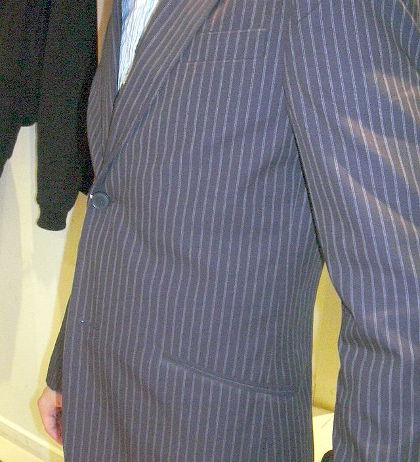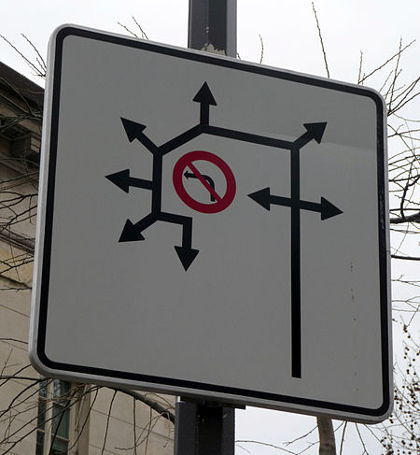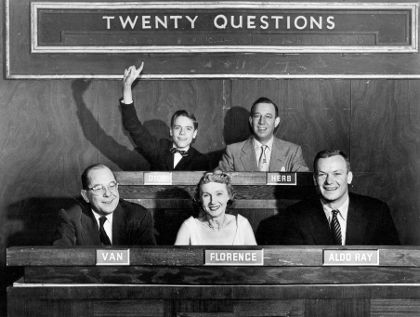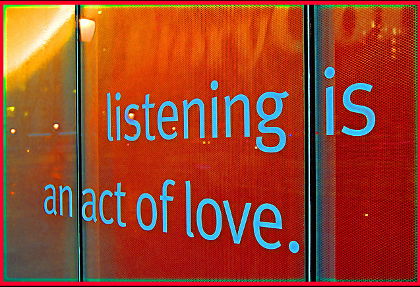Jonathan Dodd‘s latest column. Guest opinion articles do not necessarily reflect the views of the publication. Ed
When I was at school there were few things that distinguished me from my peers. The one that stood out was the ability to irritate all my teachers and every prefect I ever came up against by asking questions that started with ‘Why…’. That got me into more consistent trouble than anything else.
These questions were carefully thought out and came from a genuine need to understand what was going on. None of them were ever able to answer properly, and without exception the all believed that I was being deliberately difficult and surly.
I’m not a difficult and surly person
I declare here and now, as I did then, that I’m not a difficult and surly person, and it’s only people who aren’t able to admit that they don’t know who think so. That’s most of the people in authority I’ve ever come across. I think there’s a correlation there somewhere.

Here’s an example. After being ‘caught’ with my jacket middle button undone, I would politely ask the question – ‘I do often forget to do up my jacket middle button, and I’m sorry. Could you explain to me what the purpose of this rule is, because it would help me to remember in the future?’ This would always result in a doubling of the punishment and a public dressing-down about my ‘bad attitude towards authority’.
It’s perfectly reasonable to admit that you don’t know
I think it’s perfectly reasonable to ask questions, and it’s perfectly reasonable to admit that you don’t know without losing respect, but I can’t remember a single occasion when any politician or manager I’ve ever listened to actually put his or hand up and said that.

It’s not only people in authority who do this. I once got lost, before the days of satnavs and I asked a man in the street for directions. I only remembered afterwards the flicker of panic in his eyes before he gave me very explicit instructions and received my profuse thanks. His directions led nowhere though, he just made them up.
He must have been a gratitude junky
The same thing happened once from a help centre about a computer problem. I was given clear and concise instructions to follow a series of actions, which made everything worse. I had to take the PC to an expert, who laughed like a drain when I showed him what I had been told to do.

I can only assume that the person I asked was so afraid of losing face that he was willing to take ages to make up a load of false stuff that would waste an afternoon of my life. Why? I presume that he must have been a gratitude junky. Never mind that the gratitude was given on the false assumption that he had actually helped me.
My cardinal sin again
I just spotted my cardinal sin again. ‘Why?’ It keeps cropping up. My NLP instructor described questions that started with ‘Why…’ as ‘invitations to indulge in historical speculation’, or some such. The idea is that any other kind of question demands an answer – ‘What, where, when, who?’ – but Why questions usually have no specific answer.

It’s a right-brain thing. Your left brain collects information, but your right brain does the ideas thing. If you ever ask a Why question yourself, you should bear in mind that you’ll get someone’s opinion or they’ll tell you what they think you should hear or what will paint them in a better light, or it could be anything at all.
The Why questions that infest our brains
This can be seen as a real cause of annoyance, or as a way to gather information not necessarily related to the question. People’s answers tell us what they’re like, or what they think. They reveal some of their inner workings to us, in a way that no amount of formal questions will. These answers can also open up to us whole new thoughts and ideas that might help us to fine our own imaginative answers to the Why questions that infest our brains.

So now I’ve changed my attitude to those troublesome Why questions. I see them less as a cause of trouble, and more as a source of delight and adventurous exploration. If you remove any expectation of finding ‘proper’ answers, you can have wonderful conversations and meet new people. Not in the way of learning their names, but finding out what animates them.
A liberal sprinkling of Why questions
This is why talking about problems can often help to solve them. Not for the talking itself, and if you’re looking for answers, it probably won’t help. But if you’re looking for ideas, talking is great. Just make sure there’s a liberal sprinkling of Why questions, and listen to the answers without judging. People will tell you so much.

And there’s so much fertile ground here.
Why me?
Why do things go wrong?
Why does nobody listen?
Why do clothes never fit?
Why do I have to do my jacket middle button up?
I’m stealing someone else’s joke here, but I can’t resist it.
‘I know 25 letters of the alphabet really well. But I don’t know why.’
If you have been, thank you for reading this.
Image: Nikopoley under CC BY 2.0
Image: SummerWithMorons under CC BY 2.0
Image: Dyon Joel under CC BY 2.0
Image: gisele13 under CC BY 2.0
Image: Public Domain
Image: OneWorldGallery under CC BY 2.0
Image: annnna under CC BY 2.0



